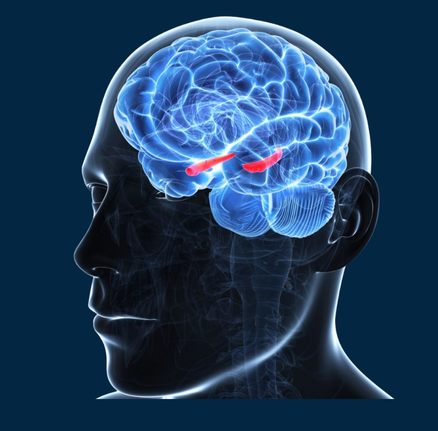
The hippocampus is a small part of the brain that plays a significant role in learning and memory. It converts short-term memories into long-term memories by storing, organizing, and retrieving information. The hippocampus helps a person learn more about their environment, making them aware of what is around them and what words to say. Unfortunately, this small part of the brain can be affected by conditions like dementia, which impacts thinking, memory, reasoning, personality, mood, and behavior. The decline in mental function associated with dementia interferes with a person’s daily life and activities. Research shows that dementia affects approximately 50% of people aged 82 and older, with Alzheimer’s disease being the most common form. It develops when nerve cells in the brain involved in learning, memory, decision-making, or language are injured or lost.
When it comes to dementia, the hippocampus is among one of the first areas damaged. This makes it difficult for a person to retain new information. A person affected by dementia often struggles to remember what they did earlier that day or what they said, and they may frequently repeat themselves in conversations. Those living with dementia may often feel afraid of the future and frequently experience moments of confusion and forgetfulness. They may also face emotional challenges that can make it difficult to control their feelings or express them properly. Individuals may react more emotionally to situations, due to a decline in their ability to think clearly or a loss of memories.
Unfortunately, damage to the hippocampus caused by dementia cannot be reversed, but it can be slowed. With smart lifestyle choices and appropriate treatments, people living with dementia can prolong their independence. As dementia progresses, everyday tasks can become increasingly challenging. To assist with memory and cognitive changes, individuals can consider various strategies to simplify daily activities:
● Maintain a To-Do List: Use a notebook or calendar to jot down tasks, appointments, and events.
● Utilize Grocery Delivery Services: Consider having groceries delivered to save time and effort.
● Organize Medications: Use a weekly pill organizer, a pillbox with reminder alarms, or a medication dispenser to manage prescriptions effectively.
● Request a Care Plan: Ask your doctor for a written care plan, and have a family member or friend take notes during the appointment to ensure clarity on care directions.
It’s also essential to engage in activities that bring joy, as exercise can significantly improve the well-being of someone with dementia. Staying active helps with mood, social connections, weight management, and sleep patterns. Here are some recommendations:
● Exercise Regularly: Strive to be physically active for at least 30 minutes most days of the week.
● Maintain Social Connections: Keep in touch with family and friends through phone calls or video chats. Conversations to Remember is available to help.
● Follow a Healthy Diet: Focus on nutritious foods while avoiding added sugars, saturated fats, and high sodium content.
Though there is currently no cure for dementia, researchers are dedicated to ensuring that individuals affected by this illness receive the support they need to improve their quality of life. While the hippocampus plays a crucial role in memory and may decline over time, there is still hope for those living with dementia to live their lives with love and connection.
Sources
- Can Dementia Be Reversed? What Current Research Shows | Neural Effects
- Dementia symptoms and areas of the brain | Alzheimer’s Society
- Dementia | Cleveland Clinic
- Hippocampus | Cleveland Clinic
- Tips for People With Dementia | Alzheimers.gov
- The psychological and emotional impact of dementia | Alzheimer’s Society
